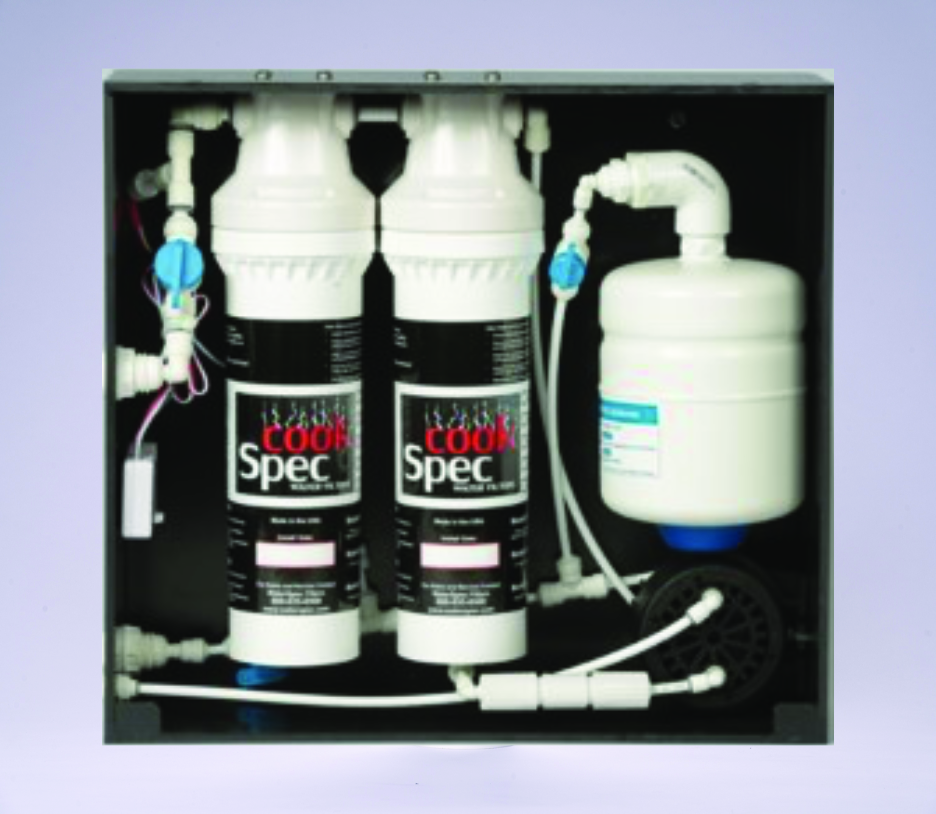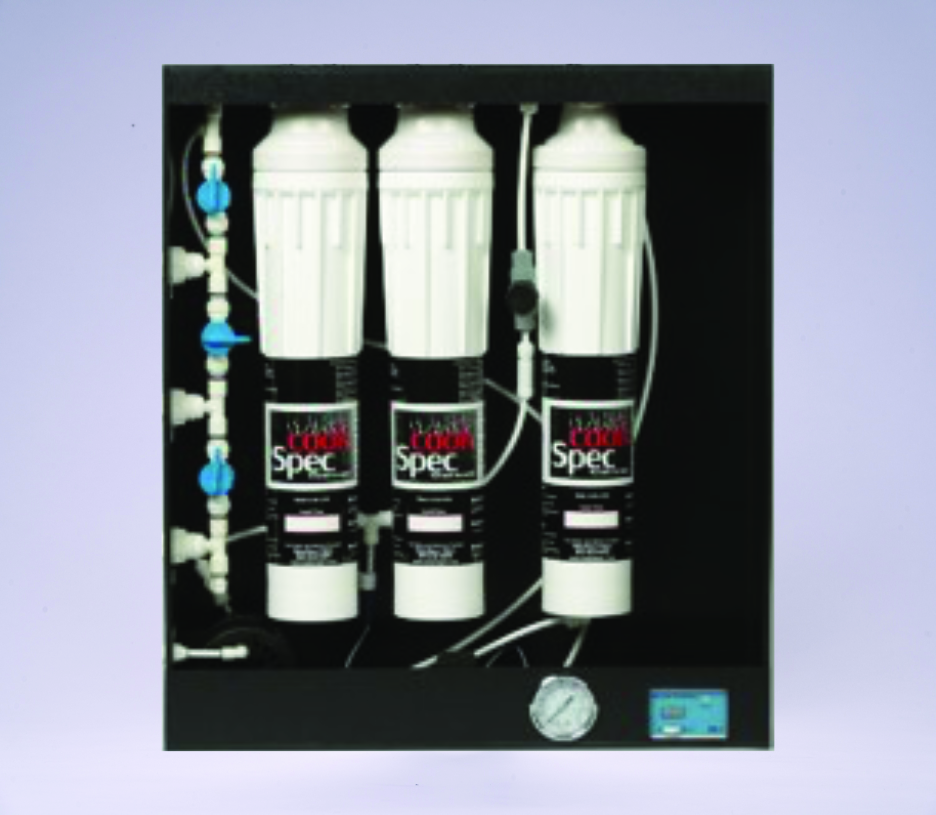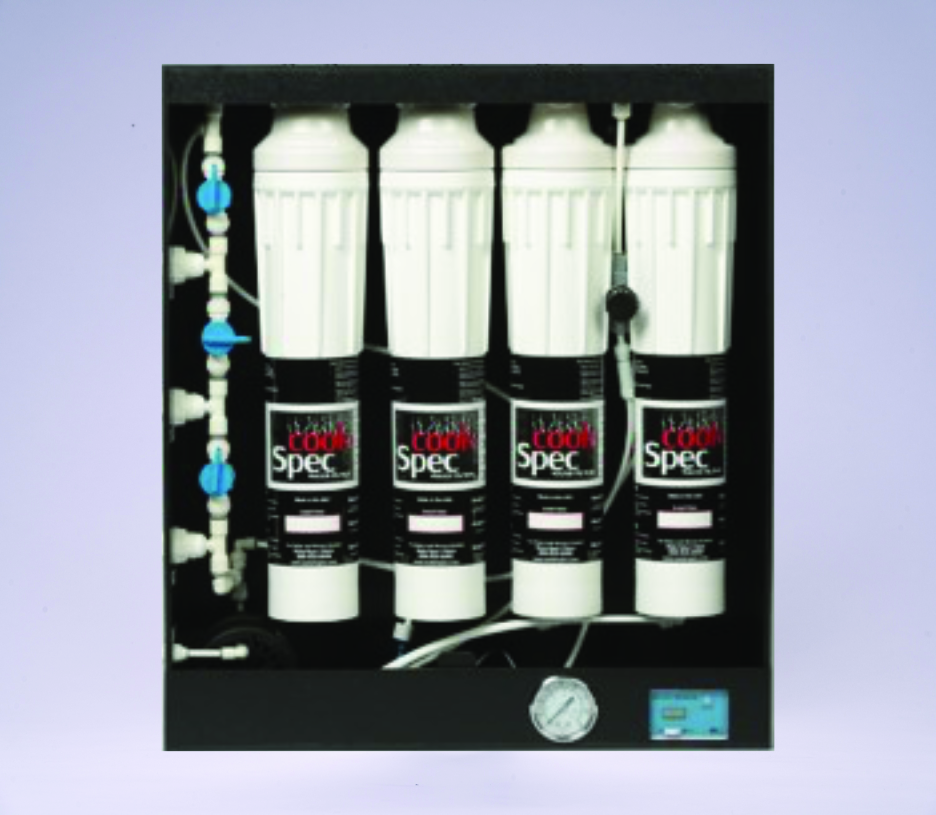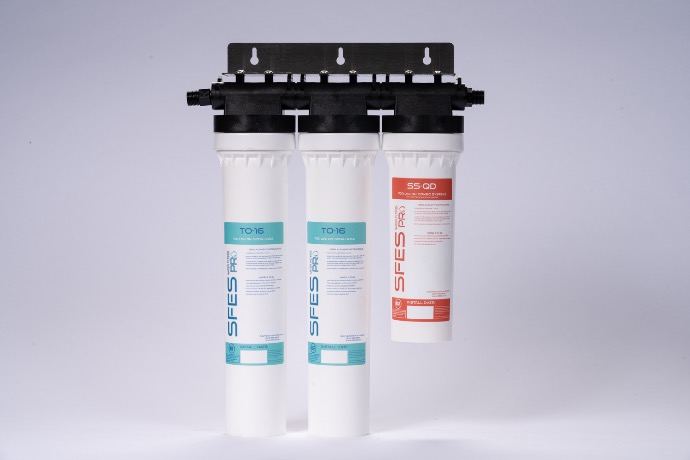COOKING APPLICATIONS
Most water-fed cooking equipment uses steam for cooking, proofing, or glazing food products. All have one thing in common, they evaporate water by heating it to produce steam and this process leads to mineral scale formation.
Evaporation – Where do the minerals go?
When water is heated and evaporated, the dissolved minerals must go somewhere. In boiler-based equipment, the dissolved minerals stay behind in the boiler. As steam is produced, the mineral content in the boiler increases along with mineral scale formation. Rule of thumb is that for every hour of a steam boiler operation, the amount of dissolved minerals including hardness in the boiler increases by the amount present in the incoming water. So if there is 200 mg/l of dissolved solids in the make up water, that will increase to 800 mg/l in the boiler after 3 hours of operation. The increase in dissolved minerals in the boiler also increase the rate at which scale will be produced. This is why it is essential that the boiler is drained after 4-6 hours of operation. This one step will decrease water related issues alone by 50% even without any water filtration.
In flash steam (boiler-less) applications, the dissolved minerals will either immediately precipitate out of solution as tiny particles or remain in solution in the water vapor, steam or condensate thus coming in contact with the stainless steel cooking cavity and its components often leading to corrosion.
Poor water quality may cause the following
Mineral scale build up on heat transfer surfaces from hard water.
Mineral scale build up on level sensing probes.
Chlorine/Chloramine induced corrosion in boiler/cooking cavity.
Chloride induced corrosion in cooking cavity
BAKERY & BOILER BASED SYSTEMS
SFES PRO Series systems for bakery equipment such as proofers, deck/rack ovens and boiler based steamers and combi ovens applications are offered in 3 separate filter options (TO, TOF, & TOC) and in 2 lengths (10" & 16"). All of the Series systems include the SS-QD cartridge that incorporates an SS-10 ScaleStick® providing unparalleled mineral scale control.
SFES PRO filters are Quick Disconnect/Bayonet Mount cartridges. These filter cartridges are installed or removed with a 1/4 turn of the filter allowing for quick and sanitary filter changes never exposing filter internals to possible contamination.
Most steamers and combination ovens have two water connections - treated water (boiler) and non-treated water (condensate/quench). Ensure that the filter systems are properly connected to only the treated water connection port.
SFES PRO TO
SFES PRO TOF
The TOF filter systems utilizes a special filter that removes both sediment and chlorine but has a higher sediment loading capacity and reduced chlorine removal capacity. This is a premium product that is mostly used where the standard TO filter plugs prematurely from excess sediment in the water supply or where lower pressure drop is important for equipment operation.
SFES PRO TOC
The TOC filter systems utilize a catalytic carbon block technology that removes sediment, chlorine and chloramine from the water supply improving the taste of the drinking water, soda, and juice beverages.
SFES PRO SS-QD
The SS-QD cartridge incorporates the patented ScaleStick® SS-10 cartridge inside the housing providing unparalleled mineral scale control for ice, coffee, tea, and espresso equipment.
BOILERLEES SYSTEMS
Many recent combination oven designs use flash steam technology. Flash steam is the process where water is sprayed or introduced in small amounts to hot environments instantly flashing or converting the water to steam eliminating the need of a boiler. The main draw back to this design is that the dissolved minerals are in direct contact with the stainless steel components which is a cause for concern due to mineral scale deposits and corrosion potential.
Although mineral scale is a concern in flash steam equipment, these deposits are accessible for removal during cleaning cycles, either automatic cleaning during hours of use or at the end of the day when the equipment is cycled off.
Of more concern is the corrosion potential from chlorine, chloramine, and chlorides found in many water supplies. Although filtration exists that will remove, chlorine and chloramine, there is only one viable technology for use in food service applications that will address both chlorine and chlorides - Reverse Osmosis.
Reverse Osmosis (RO) is the process by which most if not all dissolved minerals are removed from the water by filtering it through special membranes designed to reject most water impurities. CookSpec RO systems are specifically designed to meet the needs of boiler and boilerless cooking equipment where both mineral scale deposits and equipment corrosion are a concern. CookSpec RO Systems greatly reduce:
- Minerals that are responsible for mineral scale deposits (calcium & magnesium)
- Chlorine and chloramine responsible for corrosion of wetted stainless components.
-
Chloride which also causes pitting and corrosion in wetted stainless components.
CookSpec RO systems for boilerless cooking applications are offered in 3 different sizes.
CookSpec filters are Quick Disconnect/Bayonet Mount cartridges. These filter cartridges are installed or removed with a 1/4 turn of the filter allowing for quick and sanitary filter changes never exposing filter internals to possible contamination.
COOKSPEC
RO-175 NE

COOKSPEC
RO-250 NE

COOKSPEC
RO-450 NE

